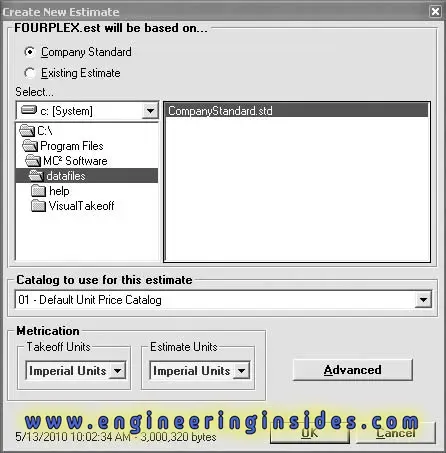In construction, accurate estimation is very important for
project success. Interactive Cost Estimating (ICE) software is a powerful tool
in the estimator's knowledge, offering a systematic approach in generating
precise project estimates. In this article, we'll study the aspects of
estimating with ICE software, breaking down the process into manageable steps.
Understanding the ICE Estimation Process
Estimating with ICE software involves a structured approach
comprising five key steps:
1. Project Setup: Begin by defining the project parameters,
including project name, location, start date, and other relevant details. This
step lays the foundation for the entire estimation process.
2. Takeoff: This crucial step involves quantifying the
materials, labor, and other resources required for the project. ICE software
provides various takeoff methods to accommodate different project requirements.
3. Pricing: Once the takeoff is complete, assign costs to
the quantities obtained. ICE software facilitates this process by allowing
users to input pricing information for materials, labor, equipment, and other
expenses.
4. Analysis: After pricing, ICE software performs
comprehensive cost analysis, aggregating the costs and providing valuable
insights into the project's financial aspects. This analysis helps in
identifying potential cost-saving opportunities and optimizing the estimate.
5. Documentation: The final step involves generating
detailed reports and documentation based on the estimate. ICE software enables
users to create professional-looking proposals, bid documents, and cost
breakdowns to communicate the estimate effectively.
Exploring the Project Information Window
The Project Information window serves as a centralized hub
for inputting and managing essential project details. Here, users can specify
project-specific information such as project name, location, client details,
and any additional notes or specifications. This window ensures consistency and
accuracy throughout the estimation process by keeping all relevant information
organized and easily accessible.
Takeoff Methods in ICE Software
ICE software offers four primary takeoff methods, each
tailored to suit different project requirements:
1. Manual Takeoff: Ideal for smaller projects or situations
where precise measurements are readily available, manual takeoff involves
manually inputting quantities and dimensions into the software.
2. Digital Takeoff: This method utilizes digital blueprints
or drawings imported into the software, allowing users to measure quantities
directly on the digital interface. Digital takeoff streamlines the process and
minimizes errors associated with manual measurements.
3. Count Takeoff: Suited for projects involving repetitive
elements such as fixtures, fittings, or components, count takeoff involves
simply counting the number of items required for the project.
4. Area and Volume Takeoff: For projects where quantities
are determined by area or volume, such as flooring or excavation, this method
calculates quantities based on specified dimensions and parameters.
Preparing a Takeoff Using Construction Systems and Miscellaneous Items
Construction Systems and Miscellaneous Items encompass a
wide range of components and materials commonly used in construction projects.
These include structural elements, finishes, fixtures, and miscellaneous items
necessary for completing the project. To prepare a takeoff using these
resources:
1. Select Items: Browse through the available construction
systems and miscellaneous items library to identify the components relevant to
your project.
2. Quantify Quantities: Input the quantities required for
each selected item based on project specifications and requirements.
3. Adjust as Necessary: Fine-tune the quantities as needed
to account for any variations or specific project conditions.
4. Verify Accuracy: Review the takeoff to ensure all
necessary items are accounted for and quantities are accurate.
Completing an Estimate Using MC2 ICE Software
To complete an estimate using MC2 ICE software, follow these
steps:
1. Project Setup: Enter project details including name,
location, start date, and client information.
2. Takeoff: Choose the appropriate takeoff method and
quantify the materials, labor, and other resources required for the project.
3. Pricing: Assign costs to the quantities obtained during
the takeoff process, considering factors such as material prices, labor rates,
and equipment costs.
4. Analysis: Review the estimate and perform cost analysis
to ensure accuracy and identify areas for optimization.
5. Documentation: Generate comprehensive reports and
documentation based on the estimate to present to clients, stakeholders, or for
internal review.
Estimating using ICE software offers a systematic and efficient approach to generating accurate project estimates. By following the process mentioned above and leveraging the features and functionalities of ICE software, estimators can streamline their workflow, minimize errors, and ultimately produce estimates that are both reliable and competitive.














